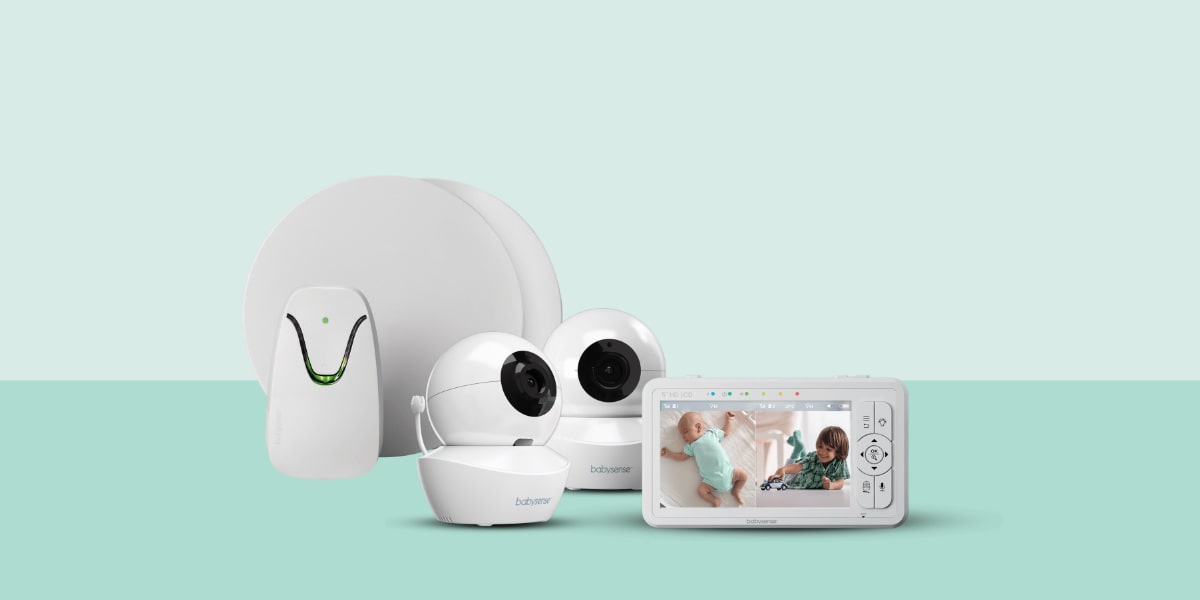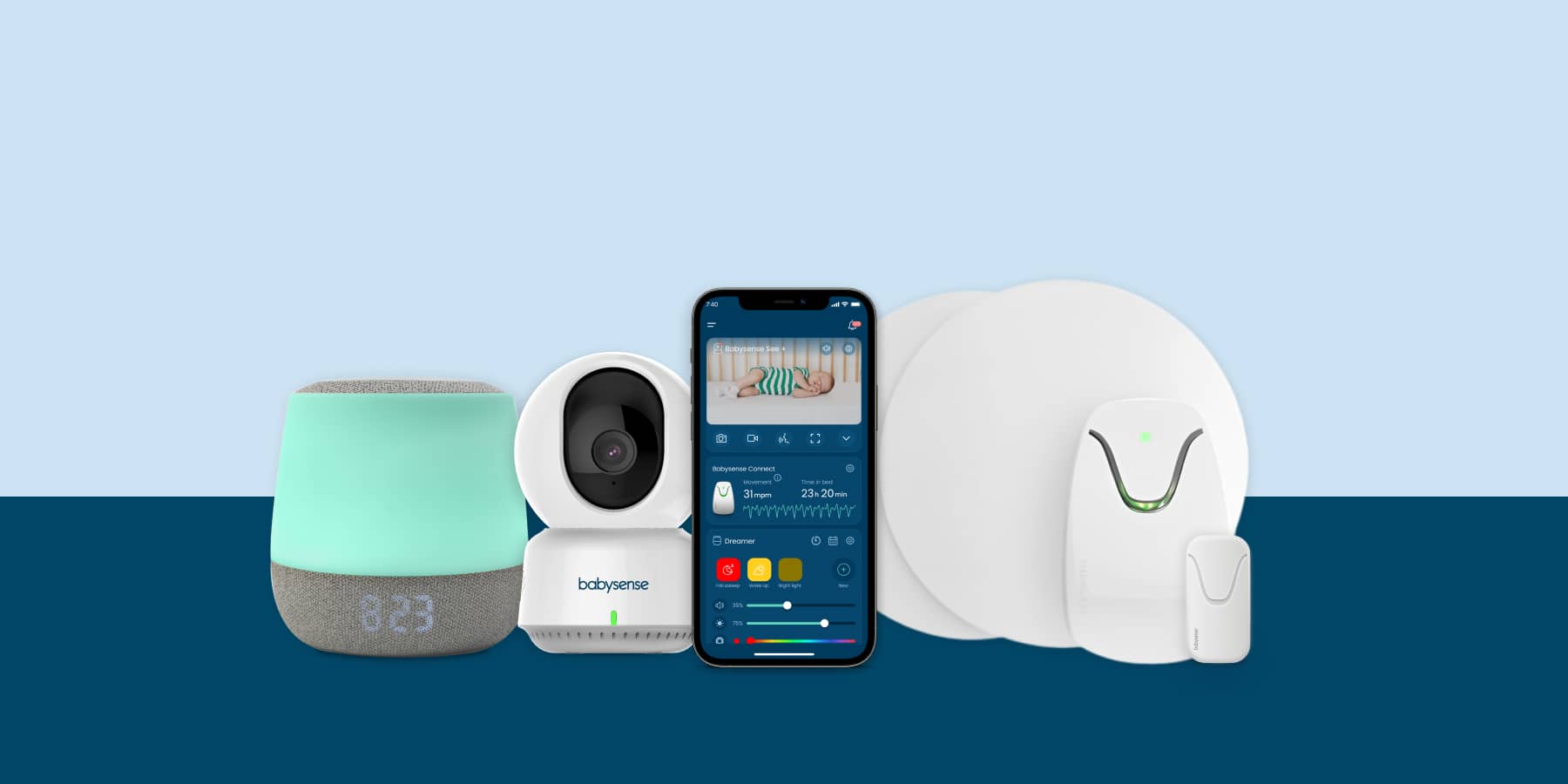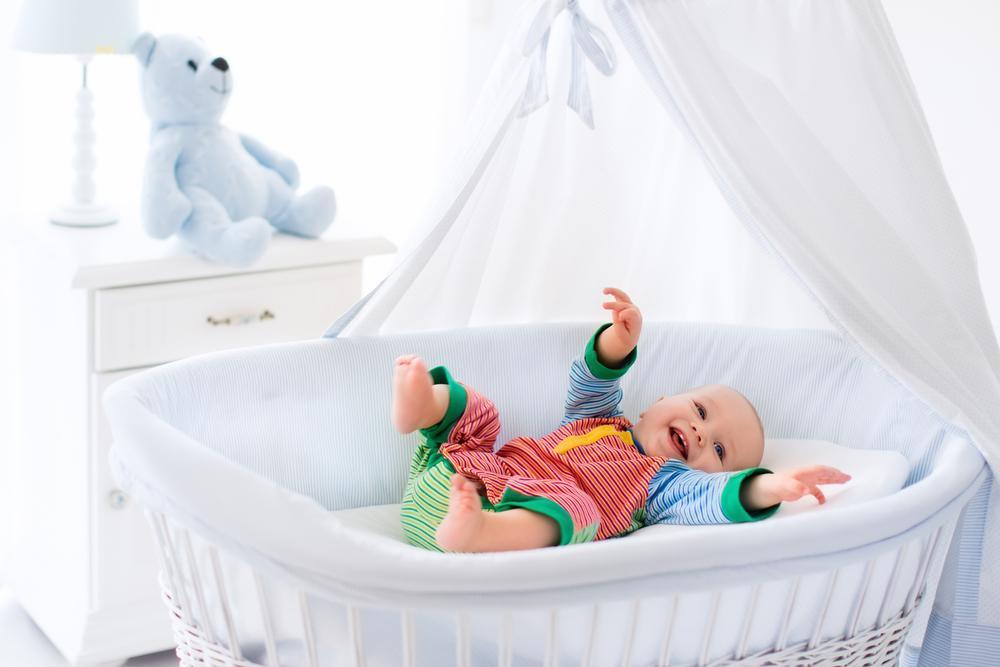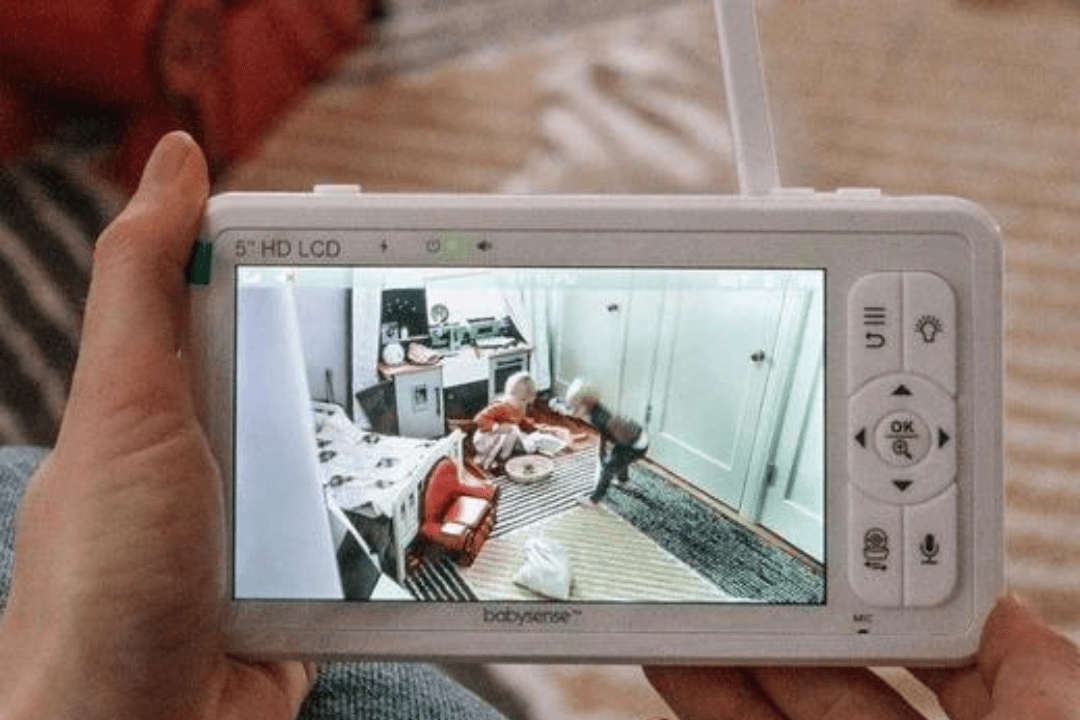My newborn can't sleep without pacifier but is it safe?
You may have noticed that giving your baby a pacifier helps them calm down, stop crying, and fall asleep. However, is it safe?
Can baby sleep with a pacifier, or are there significant risks involved?
In this article, you will learn about the benefits of giving your baby a pacifier to help them sleep, and some risks you should know about, so you can avoid them.
1. Benefits of Giving Your Baby a Pacifier at Night
Giving your child a pacifier at night (when they are old enough) is not only safe, but it can be beneficial in many ways. For example, it can help reduce the risk of SIDS—Sudden Infant Death Syndrome. Let’s go through the various benefits of letting your infant snooze off while sucking a pacifier.
2. It Can Soothe Them and Help Them Sleep
Many babies find sucking on a pacifier to be extremely calming and soothing. It can give them a sense of comfort and security, relieve anxiety, and help them relax and sleep. While you don’t want your child to become dependent on the pacifier, there’s no reason to deny them this comfort.
3. It Can Provide a Distraction From Pain
If your baby is teething, you know how miserable they can get. The pain from the new teeth coming in can be very discomforting, but a pacifier can help. A chilled pacifier is even better — just dip the pacifier in water and put it in the freezer to chill.
4. It Can Prevent SIDS
Letting your baby sleep with a pacifier isn’t dangerous. On the contrary, it can make them safer. That’s because pacifiers can help reduce the risk of SIDS, or Sudden Infant Death Syndrome.
According to studies, pacifiers can help decrease the chances of Sudden Infant Death Syndrome by more than 50 percent! That’s true even if the pacifier falls out of your baby’s mouth after they doze off.
Can Babies Sleep on Their Side?
Why is a pacifier so effective at preventing SIDS? The riskiest sleeping position for SIDS is face down; babies who sleep on their stomachs are at the highest risk for SIDS. One reason for that may be that a baby can inhale carbon dioxide they just exhaled in such a position.
Some babies’ brains may not respond correctly to this lack of oxygen, so they might not turn over and breathe faster to get more oxygen in.
A pacifier can help prevent your baby from turning over and sleeping on its stomach. It’s just harder to do that while sucking on a pacifier.
5. It Can Prevent Suffocation
Contrary to common belief, suffocation is not the same as Sudden Infant Death Syndrome. However, a pacifier can help prevent suffocation as well.
Smothering and suffocation can occur when your baby can’t breathe due to heavy blankets or pillows smothering their mouth and nose. If they have a pacifier in their mouth, that allows for a bit more space between their face and their blanket, pillow, or mattress, making it easier to breathe.
However, it’s essential to make it clear that you shouldn’t rely on a pacifier to prevent suffocating or SIDS. You still need to take all the proper precautions, such as removing stuffed animals and such from your baby’s crib and always putting them to sleep on their back.
6. It Can Help Avoid a Finger-Sucking Habit From Developing
If your baby doesn’t have access to a pacifier, that doesn’t mean they will just fall asleep without sucking on anything. They might suck on their fingers instead. Such a habit is harder to break after it develops.
While you can wean a baby off a pacifier, their finger will always be there—it’s not like you can just take their finger away from them. By ensuring they get their pacifier, you can help them avoid a more problematic habit.
7. It Can Help Them Breastfeed and Avoid Formula
One study found that babies who used pacifiers at night were more likely to breastfeed only, without needing formula.
On the other hand, babies who were restricted from using pacifiers were also more likely to use formula.
Nevertheless, more research is necessary to confirm this. Also, giving a baby a pacifier too early (during their first month) can interfere with breastfeeding, as I will explain later.
Risks Involved in Giving Babies Pacifiers at NightWhile giving your baby a pacifier at bedtime can be helpful, that doesn’t mean it doesn’t have any risks or downsides.
There are some things to know about before starting your newborn pacifier journey, so let’s go through them.
1. It Can Interfere With Breastfeeding in Newborns
Generally, experts recommend waiting around a month until you give a newborn a pacifier. That way, they have time to get used to breastfeeding and sucking on your nipple. Otherwise, there is a slight risk that sucking on a pacifier can interfere with your infant’s breastfeeding habits.
Why is that? There may be a few reasons why pacifiers can disrupt breastfeeding in newborns. Your baby might get used to sucking on the pacifier and prefer it over your nipple. That can prevent them from getting the nutrition they need. Also, if your baby’s muscles get tired from sucking on a pacifier too much, they might breastfeed for short periods only and then stop.
One study found that healthy, full-term infants who were given unrestricted access to a pacifier developed no breastfeeding problems as a result. Nevertheless, it is a good idea to be on the safe side and hold off on the pacifier for a few weeks.
2. It Can Lead to Ear Infections
Constant pacifier use can lead to an increased risk of ear infections. However, that’s mostly a problem after six months of age. Before that, the risk of an ear infection is pretty low. At the same time, those first six months are the most dangerous for SIDS, as the risk for that is highest. So, giving your baby a pacifier for sleeping when they are 1-5 months old is a pretty good idea.
3. It Can Lead to Dental Problems
Prolonged pacifier use can also lead to dental problems. That’s because a pacifier can interfere with incoming teeth and cause them to grow in the wrong way. Some pacifiers might come in a unique shape to avoid this problem.
Nonetheless, this risk isn’t something to worry about too much if your child is still young or a toddler. Pacifier use is acceptable until five or six years of age. Dental problems will only develop if your child keeps using a pacifier after that age, but most children already stop using it before then.
That’s because permanent teeth don’t grow until around that age.
4. It Can Lead to Illnesses
It is crucial to clean the pacifier properly in between uses. That way, you can avoid illnesses that a pacifier can cause.
During the first six months or so, you should boil a pacifier in hot water before letting your infant use it again. That’s because at that time, your baby’s immune system will still be fragile, and all types of germs and bacteria can affect them.
Later on, you can simply wash the pacifier with gentle soap and water without boiling it. Boiling it may still help destroy some germs, however.
Also, store the pacifier in a clean place so that it doesn’t collect germs. If it falls on the floor, clean it thoroughly before giving it back to your child. Be aware of surfaces with many germs, such as doorknobs and smartphones, and avoid letting them touch the pacifier.
If you have more than one child, don’t let them share pacifiers. It’s best to have a set of pacifiers for each child, whether they are the same age (twins) or not. You can use different colors to keep track of which pacifiers are for whom.
Never clean a pacifier off by putting it in your mouth—it might seem like a quick and easy way to clean off dirt, but it’s not safe. Your baby’s immune system isn’t as strong as yours and can’t handle germs you transfer to them.
5. Your Baby Can Become Dependent
It is important not to let your infant become dependent on their pacifier for falling asleep. If that happens, they might not be able to fall asleep any other way. If they lose their pacifier, they might cry until you come and give it back to them.
What’s more, if they wake up in the middle of the night and the pacifier has fallen out of their mouth, and they can’t find it, they might wail.
One way to avoid becoming dependent on their pacifier is not to use it as a first option. Some parents may fall into the trap of just putting their child to bed with a pacifier right away or giving them a pacifier as soon as they cry. That can make your child dependent.
Instead, use other methods of soothing your child first. For example, rock them to sleep or sing them a song. If they still can’t fall asleep, a pacifier can help.
6. It Can Pose a Choking Hazard if it has Two Pieces
Avoid two-piece pacifiers. That’s because they can break in half, and the smaller parts can pose a choking risk. Stick with one-piece pacifiers, as they are much safer. Also, don’t use a string to attach the pacifier to the crib. It might prevent the pacifier from falling on the floor, but it poses a safety risk.
7. Don’t Forget to Give Them the Love They Need
If your baby calms down every time you give them a pacifier, you might mistakenly rely on it too often. Not only can the baby become dependent on the pacifier, but they will be missing out on the love and care they need.
You need to bond emotionally with your child, hug them, and keep them close. They need emotional love and care to feel secure.
Final Thoughts
In conclusion, it’s perfectly safe to give your child a pacifier when they sleep. Not only that, but it keeps young babies safe and decreases the risk of SIDS. It can help them fall asleep and soothe their anxiety.
At the same time, it is important to take proper precautions to avoid the downsides associated with giving a baby a pacifier.
Make sure the pacifier is clean, don’t use a two-piece pacifier, don’t give one to a baby who isn’t at least a month old, and don’t use it as your first line of defense whenever they cry or can’t sleep, with a good video monitor, you can view your baby's activity, whilst being occupied with another task.








